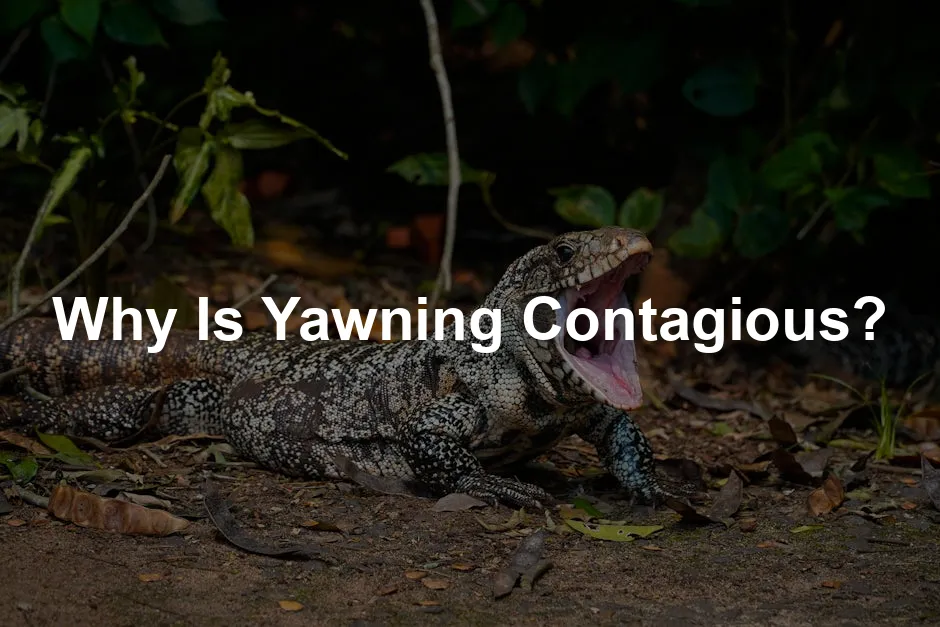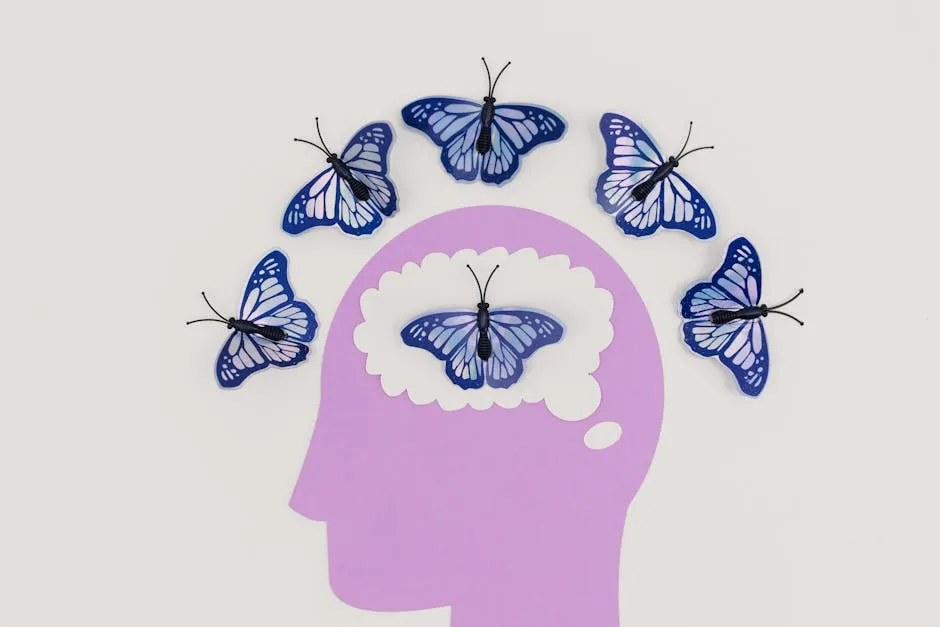
Why Is Yawning Contagious?
Introduction
Yawning is an involuntary reflex. It often signals sleepiness or boredom. However, yawning can occur for other reasons too. Contagious yawning happens when you yawn after seeing or hearing someone else yawn. This phenomenon is common in both humans and animals. Surprisingly, researchers still haven’t pinpointed why yawning is contagious.
In social settings, you might find yourself yawning just by witnessing it. It’s a fascinating behavior that raises many questions. In this blog, we will explore the reasons behind contagious yawning and its implications for our social interactions.
To dive deeper into the curious world of yawning, check out Yawning: A Natural History of a Universal Human Behavior. This insightful book explores the depths of yawning, revealing its mysteries and significance.
Summary and Overview
Yawning can be categorized into two main types: spontaneous and contagious. Spontaneous yawning happens independently and is often tied to fatigue or boredom. Contagious yawning, on the other hand, is triggered by observing others yawn.
Several theories attempt to explain why yawning spreads among individuals. One theory suggests that it helps regulate brain temperature, while another indicates it may increase alertness. Additionally, social synchronization plays a role in this behavior. Understanding yawning’s social context can provide insights into empathy and emotional connections among individuals.
Exploring yawning goes beyond mere biology; it touches on psychological and social aspects. Recognizing the significance of contagious yawning can deepen our appreciation of human and animal behavior. If you’re interested in animal behavior, consider reading Animal Behavior: An Evolutionary Approach. It provides a comprehensive look into why animals behave the way they do, including their yawning habits.

Theories Behind Yawning
Physiological Theories
Yawning has intrigued researchers for years. One prominent idea suggests yawning helps cool the brain. When you yawn, you inhale deeply, which can lower brain temperature. Studies show that this cooling effect might enhance cognitive functioning. The stretching of facial muscles during yawning also boosts blood flow, contributing to this process.
Another theory connects yawning to alertness. Yawning often occurs during transitions, like waking up or feeling bored. This behavior can trigger physiological changes, such as increased heart rate and deeper breathing. These changes might help you feel more awake and engaged. Yawning acts as a natural alarm, signaling to your body that it’s time to stay alert.

Psychological Theories
Contagious yawning may also reflect social dynamics. One theory suggests that social mirroring plays a role in this phenomenon. When you see someone yawn, your brain may automatically trigger a similar response. This connection could help strengthen social bonds and enhance group awareness.
Research indicates that empathy may influence contagious yawning. Studies show that individuals with strong emotional connections are more likely to yawn in response to others. For example, people often yawn more in the presence of friends and family. This behavior may serve as a nonverbal cue, reinforcing emotional ties within social groups. If you want to understand this concept better, check out The Social Animal: The Hidden Sources of Love, Character, and Achievement. This book delves into the intricate web of human social interactions.

Contagious Yawning in Animals
Cross-Species Observations
Yawning isn’t just a human quirk; many animals yawn too! Chimpanzees are known to yawn contagiously, especially when they see fellow chimps yawning. This behavior suggests a shared social bond. Dogs also exhibit this behavior. Studies show that dogs often yawn when their owners yawn, indicating a connection between pet and owner. Elephants are another fascinating example. They yawn in response to other elephants’ yawns, showcasing their social nature.
Contagious yawning appears more common in social species. These animals often live in groups and depend on cooperation for survival. In contrast, solitary animals tend to yawn less in response to others. This difference may highlight the evolutionary advantages of yawning in groups. For social animals, synchronized yawning could enhance alertness and communication among individuals.
Research supports these ideas. A study found that chimpanzees yawned more when viewing familiar individuals than strangers. Such findings suggest that emotional closeness influences yawning across species. These observations remind us of the deep connections we share with animals, and how social dynamics shape behavior. To understand more about this, consider reading Contagious Yawning: A Study of Human and Animal Behavior. It explores this behavior in depth across various species.

Factors Influencing Contagious Yawning
Social Bonds and Relationships
The power of social bonds is evident in yawning behavior. Familiarity has a significant impact on how likely you are to yawn when someone else does. Research indicates that people yawn more in response to friends and family than to acquaintances. This pattern supports the emotional bias hypothesis. It suggests that emotional closeness enhances susceptibility to contagious yawning.
Studies show that social context also plays a role. For instance, yawning is more contagious in relaxed settings, where individuals feel connected. In contrast, yawning responses may diminish in less familiar environments. This connection emphasizes how relationships shape our reactions to others. If you’re looking to improve your social interactions, consider reading How to Talk to Anyone: 92 Little Tricks for Big Success in Relationships. This book is packed with tips to enhance your conversational skills.

Individual Differences
Yawning isn’t the same for everyone. Some people yawn more contagiously than others. This can stem from their neurological make-up or emotional traits. Research shows a strong link between empathy and yawning. Those with higher empathy levels tend to yawn more in response to others.
A noteworthy study examined individuals with autism spectrum disorder (ASD). It revealed that these individuals yawned less in reaction to others yawning. This suggests that the ability to empathize plays a role in yawning contagion. The findings shed light on how social behavior can differ among people, especially in terms of emotional connections. For parents looking to understand more about this topic, Understanding Autism: A Guide for Parents and Professionals can provide valuable insights.

Excessive Yawning: When Is It a Concern?
While yawning is common, excessive yawning might signal health issues. If you find yourself yawning more than usual, it could be worth exploring. Various medical conditions are linked to excessive yawning, such as sleep disorders like narcolepsy. Neurological issues, including epilepsy and multiple sclerosis, can also contribute to this behavior.
If yawning occurs frequently without clear reasons, it’s advisable to consult a healthcare professional. They can help identify any underlying conditions. Context is crucial in interpreting yawning frequency. Factors such as stress, fatigue, or boredom can influence how often you yawn. To help with sleep-related issues, consider checking out Sleep Soundly: A Comprehensive Guide to Sleep Disorders. It could be a game-changer for understanding your sleep patterns.
In summary, while yawning is typically harmless, awareness of excessive yawning is essential. If it becomes a concern, seeking medical advice can ensure your health remains a priority.

Conclusion
In this article, we explored the fascinating phenomenon of contagious yawning. We discussed various theories, including brain cooling and social synchronization. Yawning serves more than just a biological function; it highlights our social dynamics and emotional connections.
The complexity of yawning encourages us to consider its significance in both human and animal behavior. Observing yawning can deepen our understanding of empathy and social interactions. To further your knowledge, consider reading The Science of Yawning: Why We Yawn and Why It Matters. This book dives into the science behind this curious behavior.
I invite you to pay attention to yawning in your daily life. Notice how it affects your interactions and those around you. The next time you yawn, think about what it might mean for your social connections.
FAQs
Why do we yawn when others yawn?
Yawning is contagious due to a reflex. When you see or hear someone yawn, your brain triggers a similar response. This suggests a strong connection between social cues and our behavior.
Is yawning always a sign of tiredness?
No, yawning can happen for various reasons. It may indicate boredom, a need for increased oxygen, or even the brain’s cooling mechanism.
Can animals yawn contagiously like humans?
Yes, several animals exhibit contagious yawning. For example, chimpanzees, dogs, and elephants have been observed responding to yawns from others in their social groups.
What health issues can excessive yawning indicate?
Excessive yawning may signal health concerns like sleep disorders, neurological issues, or even anxiety. If it occurs frequently without clear reasons, consult a healthcare professional.
Does everyone respond to yawning contagiously?
Not everyone responds equally. Individual differences, such as empathy levels and neurological factors, affect susceptibility to contagious yawning. Some may yawn more readily than others based on these traits.
Please let us know what you think about our content by leaving a comment down below!
Thank you for reading till here 🙂
Understanding why yawning is contagious can provide insights into social behavior. why is yawning contagious
All images from Pexels




